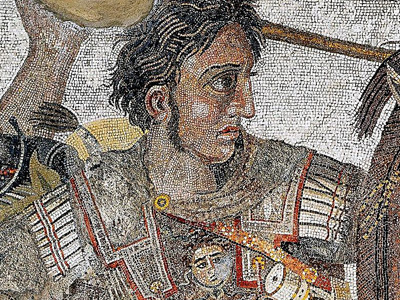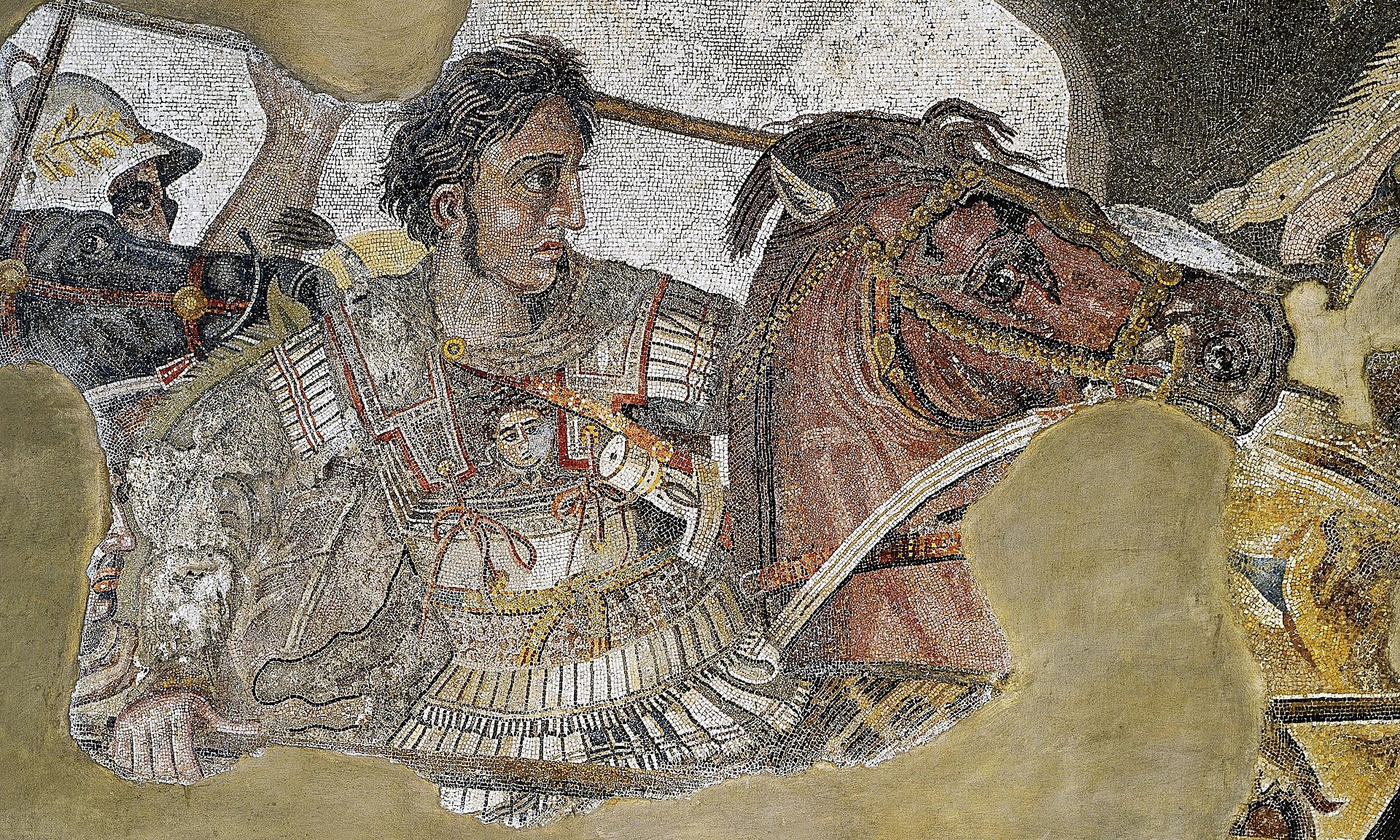Alexander the Great (356-323 BC)
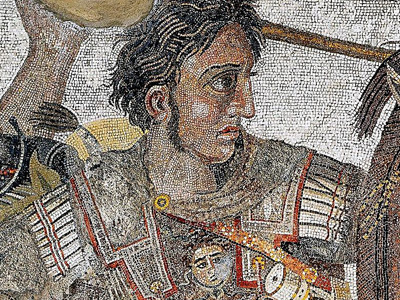
King of Macedon
Accession
In summer 336 BC, while at Aegae attending the wedding of his daughter Cleopatra to Olympias's brother, Alexander I of Epirus, Philip was assassinated by the captain of his bodyguards, Pausanias. As Pausanias tried to escape, he tripped over a vine and was killed by his pursuers, including two of Alexander's companions, Perdiccas and Leonnatus. Alexander was proclaimed king on the spot by the nobles and army at the age of 20.
Consolidation of power
Alexander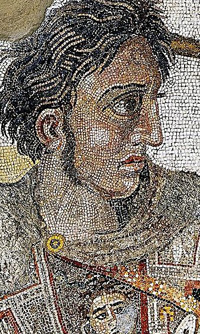 Alexander the Great (356-323 BC), was a king of the Ancient Greek kingdom of Macedon. He spent most of his ruling years on an unprecedented military campaign through Asia and northeast Africa. He was undefeated in battle and is widely considered one of history's most successful military commanders. Alexander the Great » began his reign by eliminating potential rivals to the throne. He had his cousin, the former Amyntas IV, executed. He also had two Macedonian princes from the region of Lyncestis killed, but spared a third, Alexander Lyncestes. Olympias had Cleopatra Eurydice and Europa, her daughter by Philip, burned alive. When Alexander learned about this, he was furious. Alexander also ordered the murder of Attalus, who was in command of the advance guard of the army in Asia Minor and Cleopatra's uncle.
Alexander the Great (356-323 BC), was a king of the Ancient Greek kingdom of Macedon. He spent most of his ruling years on an unprecedented military campaign through Asia and northeast Africa. He was undefeated in battle and is widely considered one of history's most successful military commanders. Alexander the Great » began his reign by eliminating potential rivals to the throne. He had his cousin, the former Amyntas IV, executed. He also had two Macedonian princes from the region of Lyncestis killed, but spared a third, Alexander Lyncestes. Olympias had Cleopatra Eurydice and Europa, her daughter by Philip, burned alive. When Alexander learned about this, he was furious. Alexander also ordered the murder of Attalus, who was in command of the advance guard of the army in Asia Minor and Cleopatra's uncle.
Attalus was at that time corresponding with Demosthenes, regarding the possibility of defecting to Athens. Attalus also had severely insulted Alexander, and following Cleopatra's murder, Alexander may have considered him too dangerous to leave alive. Alexander spared Arrhidaeus, who was by all accounts mentally disabled, possibly as a result of poisoning by Olympias.
News of Philip's death roused many states into revolt, including Thebes, Athens, Thessaly, and the Thracian tribes north of Macedon. When news of the revolts reached Alexander, he responded quickly. Though advised to use diplomacy, Alexander mustered 3,000 Macedonian cavalry and rode south towards Thessaly. He found the Thessalian army occupying the pass between Mount Olympus and Mount Ossa, and ordered his men to ride over Mount Ossa. When the Thessalians awoke the next day, they found Alexander in their rear and promptly surrendered, adding their cavalry to Alexander's force. He then continued south towards the Peloponnese.
Alexander stopped at Thermopylae, where he was recognized as the leader of the Amphictyonic League before heading south to Corinth. Athens sued for peace and Alexander pardoned the rebels. The famous encounter between Alexander and Diogenes the Cynic occurred during Alexander's stay in Corinth. When Alexander asked Diogenes what he could do for him, the philosopher disdainfully asked Alexander to stand a little to the side, as he was blocking the sunlight. This reply apparently delighted Alexander, who is reported to have said "But verily, if I were not Alexander, I would like to be Diogenes." At Corinth, Alexander took the title of Hegemon ("leader") and, like Philip, was appointed commander for the coming war against Persia. He also received news of a Thracian uprising.
Balkan campaign
Before crossing to Asia, Alexander wanted to safeguard his northern borders. In the spring of 335 BC, he advanced to suppress several revolts. Starting from Amphipolis, he travelled east into the country of the "Independent Thracians"; and at Mount Haemus, the Macedonian army attacked and defeated the Thracian forces manning the heights. The Macedonians marched into the country of the Triballi, and defeated their army near the Lyginus river (a tributary of the Danube). Alexander then marched for three days to the Danube, encountering the Getae tribe on the opposite shore. Crossing the river at night, he surprised them and forced their army to retreat after the first cavalry skirmish.
News then reached Alexander that Cleitus, King of Illyria, and King Glaukias of the Taulanti were in open revolt against his authority. Marching west into Illyria, Alexander defeated each in turn, forcing the two rulers to flee with their troops. With these victories, he secured his northern frontier.
While Alexander campaigned north, the Thebans and Athenians rebelled once again. Alexander immediately headed south. While the other cities again hesitated, Thebes decided to fight. The Theban resistance was ineffective, and Alexander razed the city and divided its territory between the other Boeotian cities. The end of Thebes cowed Athens, leaving all of Greece temporarily at peace. Alexander then set out on his Asian campaign, leaving Antipater as regent.
HISTORY
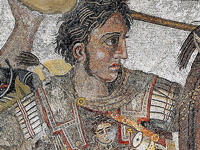
RESOURCES
This article uses material from the Wikipedia article "Alexander the Great", which is released under the Creative Commons Attribution-Share-Alike License 3.0.
© Stories Preschool. All Rights Reserved.
